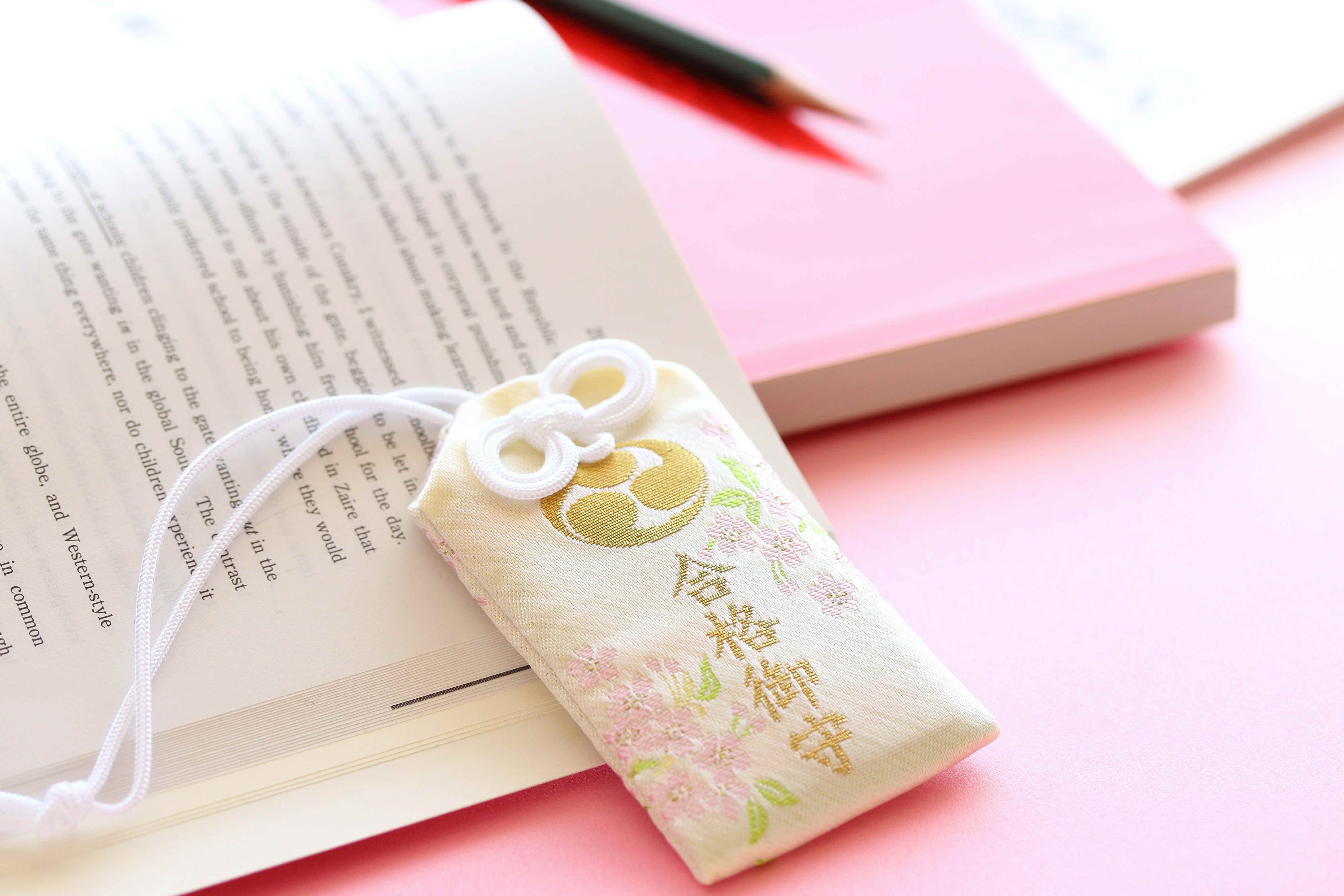“O-Mamori” are a small, flat, little baggy shape. They are often sold at shrines, haven’t you ever seen them? There are many kinds of their shapes, and not all of them are small bags, the most typical type of “O-Mamori” is this one.
Although “O-Mamori” have different nuances from “Charm” or “amulet” in foreign countries, we have chosen “Charm” here. Essentially, “O-Mamori” is not something you buy for yourself. It’s something you buy for the sake of another person’s happiness. There are various kinds of blessings such as “prosperity in business,” “safe delivery,” “diligence in studies,” etc., each of them should be only bought for the happiness of others, not for your own benefit. “O-Mamori” will be a perfect souvenir for someone to take home? Oh, we’re not saying that what you buy for yourself doesn’t work for you. Probably, you can get a decent amount of happiness.
By the way… These days, there are even “omamori” in electronic data format. Unbelievable? Well, there’re also services that allows you to “visit” shrines on the web. Wow… this is the 21st century!?
About handling of “O-Mamori”
If you purchased “O-Mamori” yourself, or if someone gave you “O-Mamori”… You will be wondering what you should treat with it. It’s a sacred one, and it should be also a gift from someone with a lot of care. So it can’t be handled carelessly, right? You don’t have to worry. In this section, we’ll explain about handling of “O-Mamori”.
Most of “O-Mamori” are small enough to be carried easily. Of course, there are many forms of them. Therefore, we can’t say that not all of them are suitable to be carried around on a daily basis. For ones that are hard to carry, you can keep them somewhere clean and safe at home. On the other hand, for the portable ones, you can take them with you as well as any other items. You can carry them in your pocket or in your bag. There is no need to put them in any special bags or containers. However, we’d like you to make sure that you do not handle them roughly. Also, please be careful not to lose them. Perhaps more concerning will be the question of what to do with old “O-Mamori”. Is it really a good idea to get rid of them or not…? A “O-Mamori” contains various kinds of wishes. Such as “prosperity in business”, “safe delivery”, “diligence in studies,” and etc… If your wish came true… If you were blessed with good fortune, or if you were not tormented by bad luck, you may be wondering what to handle with the “O-Mamori”, right? You can’t just throw them away because you don’t need them anymore or because they are in the way. The best way to do is to bring the “O-Mamori” to the shrine where you(or someone) bought it when your wish comes true. The end of the year or the beginning of the new year can be also a good time. And, after politely thanking the gods enshrined in the shrine, you should ask the shrine to take back the “O-mamori”. It would be better to understand that as a system of “returning borrowed lucky items”. If you ask the shrine staff, they will tell you where you can return it. The shrine disposes of the returned “O-Mamori” in a proper manners and rituals. If you visit shrines during the year-end and New Year’s season, you will probably see sacrificial objects and offerings being burned. Those huge bonfire are usually called “O-Takiage”, and that is one of the rituals to dispose of sacrificial items. In some areas, the rituals of “O-Takiage” New Year’s decorations is called “Dondo-yaki” in mid-January. If you live far away from the shrine, or if it is difficult for you to visit the shrine… In such cases, you can ask to take back the “O-mamori” when you visit your local shrine or some other shrine. In that case, it would be better to go to a shrine where the same God (or the same family of God) is enshrined, but that will be difficult for those who don’t live in Japan. Therefore, any shrine will be OK. At least, each of them is a shrine where the same Japanese god is enshrined. By the way, some shrines accept the return of “O-Mamori” by mail. Of course, if you want to ask for a “O-Takiage”, please check beforehand.
Apologies for the somewhat sketchy explanation. Just remember, you don’t necessarily have to get rid of your “O-Mamori”. Each has his or her own feelings about it. If it was given to you by someone else, it’s even more so, isn’t it? Therefore, we don’t think you should be forced to get rid of them. However, at least, right? Whenever you remember, please you can say “Thank you very much, Gods of Japan”. After all, it is the “feeling” of gratitude that is important.




_op.png)
_001.png)
_002.png)
_003.png)
_004.png)
_005.png)
_006.png)
_007.png)
_008.png)
